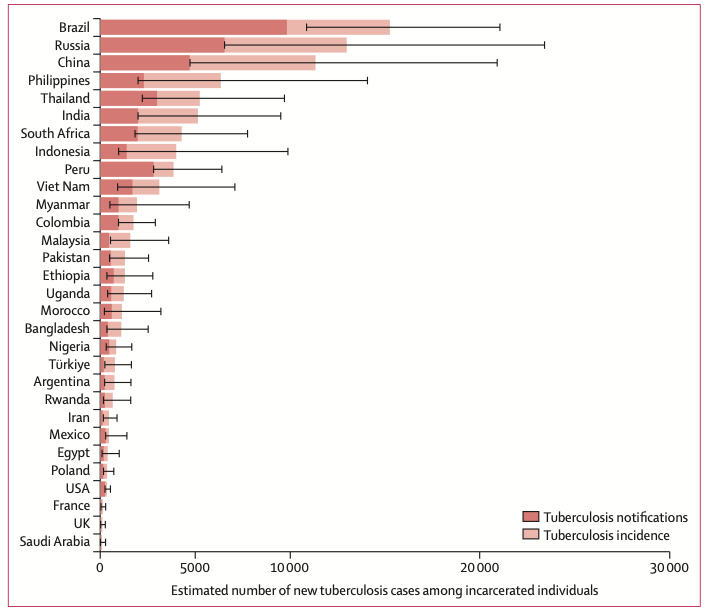Karabo Rafube (41), a former inmate who contracted tuberculosis (TB) in prison says it’s concerning that the fight against the infectious disease continues to be neglected within South African prisons.
He was speaking after the recent launch of a new global study that found a significantly higher incidence of TB among the prison population.
Reearchers found that 125,000 of 11 million incarcerated people worldwide developed TB in 2019. This incidence rate of 1,148 cases per 100,000 people per year compared to the global incidence rate of 127 cases per 100,000 people per year.
This means that people in prison are nine times more at risk of developing TB than the general population globally. The study researchers also found that there is a strong relationship between country-level tuberculosis incidence rates and overcrowding in prisons.
The International Union Against Tuberculosis and Lung Disease reports South Africa has an incidence rate of 2,903 cases per 100, 000 incarcerated persons. This is 20 times the risk faced by the general population. The Union’s head of communications, Alex Metcalfe, says these rates of TB in South African prisons indicate a ‘severe epidemic that is out of control.’
The Department of Correctional Services spokesperson, Singabakho Nxumalo, told Health-e News that of a prison population of 154 000, 628 sentenced inmates and 303 remand detainees have TB, and all are on treatment.

Living with TB in prison
Rafube says that despite known overcrowding within correctional services facilities in South Africa, inmates aren’t screened for TB when they enter prison.
He was 19 when he was arrested for his alleged involvement in a business robbery case. Squeezed into an overcrowded cell, his health started deteriorating.
“I was placed in a cell which had more than 150 other inmates. The cell was overcrowded, with no shower, one toilet and it was so small, one could even struggle to breathe,” recalls Rafube.
A few months later, Rafube started to feel weak and tired all the time. He had dramatically lost weight in a short period.
“I thought that I was HIV positive. I informed the prison nurse about what I was feeling inside of my body, but she was rude to me and my health was deteriorating each day,” he says.
The prison then employed a new nurse, who suggested that Rafube and some fellow inmates get tested for both TB and HIV.
“I was finally diagnosed with TB after months of suffering and then I was put on treatment for six months. With the support of the new nurse I managed to overcome the disease but I saw other inmates quitting the treatment altogether, while others were never placed on treatment”, says Rafube.
Soon after completing his treatment, he became a TB teacher in prison. Sixteen years after his release, Rafube still visits prisons all over the country to advocate for the health rights of all inmates, and to educate them about the dangers of the infectious disease.
Risk of spreading TB in communities
“What I have seen so far is that TB care is neglected within South African prisons and the overcrowding conditions makes it worse. Thousands of inmates are living with TB and most of them are not even aware, while others do not care as there is a lack of education and awareness about the disease within South African prison settings,” says Rafube.
Nxumalo disagrees. “The only challenge is experienced with remand detainees that may at any time be acquitted by the courts or paid bail and get released back into their respective communities but those remaining in correctional centres receive their treatment until they are cured,” says Nxumalo.
Leonardo Martinez, the study’s lead author says that the connection between TB and overcrowding suggests that efforts to limit the number of people who are detained may be one potential public health tool to combat the TB epidemic in prisons.
“The high incidence rate globally and across regions, low case detection rates, and consistency over time indicate that this population represents an important, under-prioritised group,” says Martinez.
Martinez says that the continued failure to detect, treat, and prevent tuberculosis in prisons means that when incarcerated persons are released from prison they can take TB back into the communities in which they live, further contributing to the spread of this infectious disease globally.
“Greater focus and resources for addressing the tuberculosis epidemic in prisons are needed to protect the health of incarcerated people and their communities,” says Martinez.-Health-e News.
This post was originally published on this site be sure to check out more of their content.






